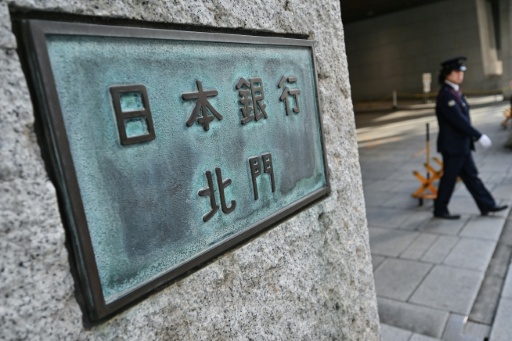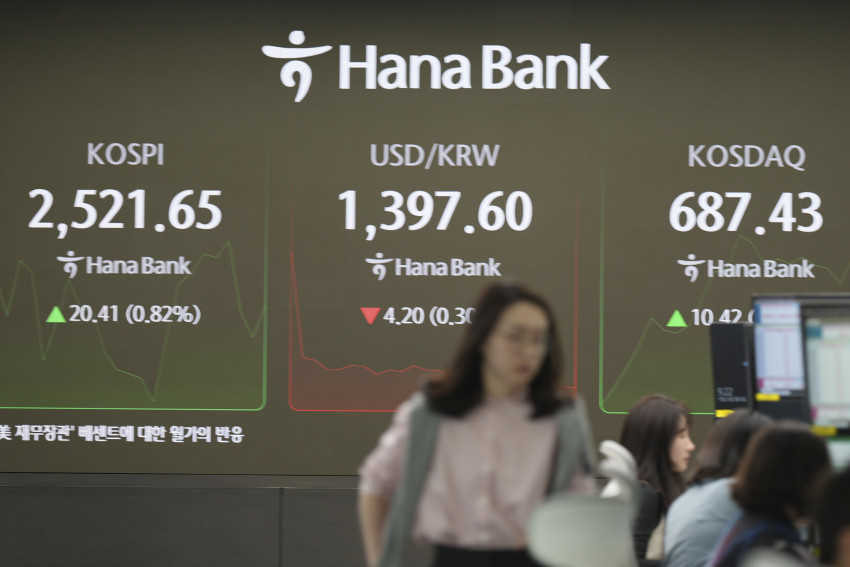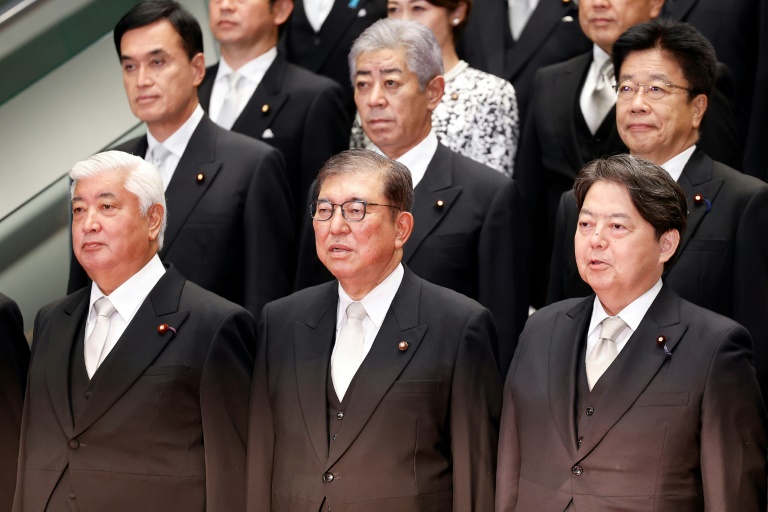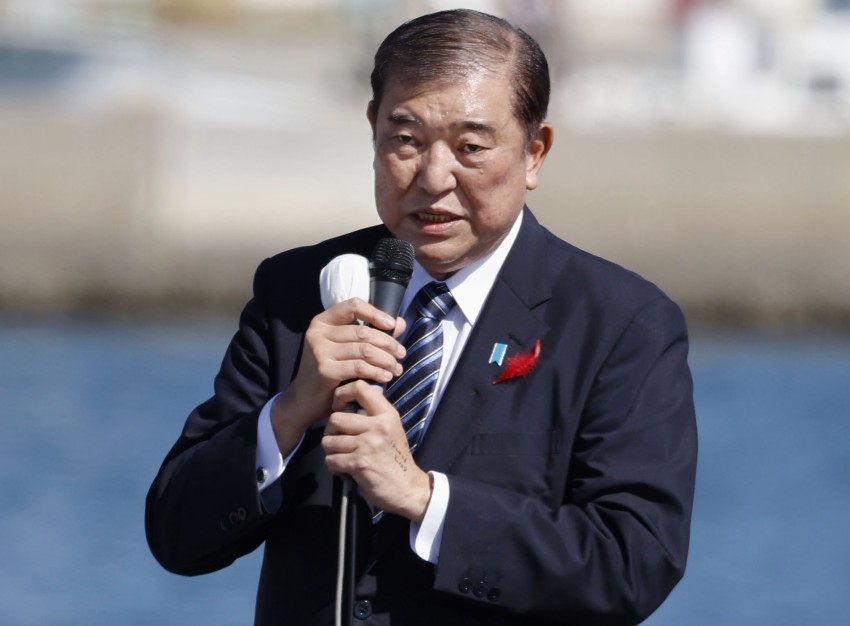Nikkei rises 19% in 2024; highest year-end finish on record
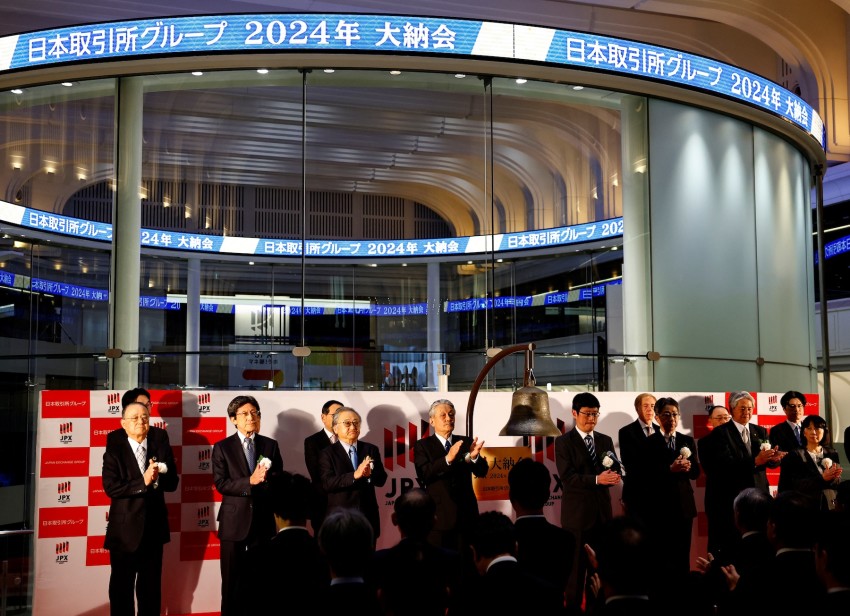
The Nikkei stock index ended the final trading day of 2024 on a down note but, for the year, rose 19 percent from 2023, closing at a record high on strong corporate earnings and a weaker yen boosting export-oriented stocks.
The 225-issue Nikkei Stock Average ended down 386.62 points, or 0.96 percent, from Friday at 39,894.54. The broader Topix index finished 16.76 points, or 0.60 percent, lower at 2,784.92.
Japanese financial markets will be closed from Tuesday through Sunday for the New Year holidays.
The U.S. dollar remained firm mostly in the upper 157 yen range on speculation that the interest rate differential between the United States and Japan would remain wide after U.S. Treasury yields climbed on Friday, dealers said.
At 5 p.m., the dollar fetched 157.88-90 yen compared with 157.79-89 yen in New York and 157.81-83 yen in Tokyo at 5 p.m. Friday.
The euro was quoted at $ 1.0425-0427 and 164.60-64 yen against $1.0427-0437 and 164.62-72 yen in New York and $1.0421-0423 and 164.46-50 yen in Tokyo late Friday afternoon.
The yield on the benchmark 10-year Japanese government bond fell 0.010 percentage point from Friday's close to 1.090 percent, after hitting its highest level in over 13 years on Friday. Bond yields move inversely to prices.
Starting 2024 at around 33,000, the Nikkei steadily climbed, exceeding in February the previous peak in 1989 during Japan's asset-inflated era and hitting a record-closing high of 42,224.02 on July 11. The Topix index also ended at an all-time high on the same day.
However, the market experienced turbulent trading in the summer after the Bank of Japan's surprise decision to raise interest rates in July, which caused the yen to strengthen sharply against the dollar and led to sell-offs of export-oriented stocks.
The Nikkei posted its largest single-day point loss on Aug. 5, plunging over 4,400 points, or about 12 percent, to the 31,000 level amid a strengthening yen and fears of a U.S. economic recession following disappointing data.
But the benchmark recouped much of the loss the following day, logging the largest single-day point gain in its history by rising 3,200 points, or about 10 percent.
"There was much optimism in the first half of the year with hope for a favorable cycle in which wages increase in tandem with prices, alongside the weak yen for corporate profits," said Kazuo Kamitani, a strategist in the Investment Content Department of Nomura Securities Co.
A weak yen inflates overseas profits of Japanese companies when repatriated.
While sentiment was dampened in the second half of the year due partly to a certification scandal by Toyota Motor Corp. and some other automakers, the Nikkei regained momentum in recent weeks on a weakening yen, while investors also welcomed merger talks between Honda Motor Co. and Nissan Motor Co., Kamitani added.
The yen was weak for most of the year against the dollar, with the Japanese currency plunging to its lowest level in 37 years against the dollar at 161.96 in early July as the dollar attracted buying on speculation that U.S. inflation will accelerate.
The rapid depreciation of the yen prompted the BOJ to intervene in the market by conducting yen-buying operations several times.
On Monday, stocks were mostly in negative territory as technology shares tracked declines in their U.S. counterparts late last week, and investors locked in gains after the benchmark soared more than 1,200 points over the three previous trading days.
Investors also sold shares to adjust positions ahead of the long holiday, with some caution as overseas markets will be open on some days that the Japanese market is closed, Kamitani said.
On the top-tier Prime Market, decliners were led by service, nonferrous metal and electric appliance issues.

